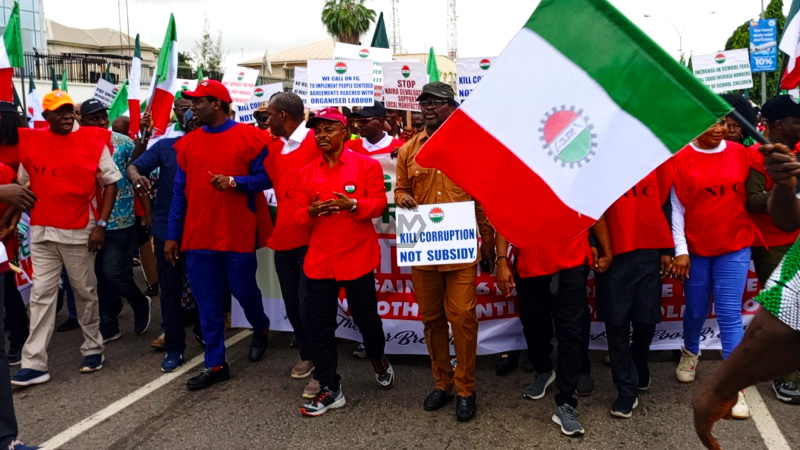- Economic deflation advocated over minimum wage hikes in Nigeria.
- Increasing wages may exacerbate inflation, worsening economic challenges.
- Focus needed on infrastructure, agriculture, and data-driven policies for sustainable solutions.
While some advocate for minimum wage increases to address economic woes in Nigeria, others like Onuesoke argue for a different approach. They contend that raising wages could fuel inflation, further burdening citizens.
In the midst of wage hike debates, Onuesoke emphasizes the importance of holistic solutions. He calls for targeted efforts in sectors like agriculture and infrastructure to uplift the economy, stressing the need for informed decision-making based on accurate data to drive impactful change.
Economic stability in Nigeria: Prioritizing deflation over wage increases
In the tug-of-war between minimum wage increments and economic stability in Nigeria, Chief Sunny Onuesoke presents a compelling argument. Rather than resorting to wage hikes as a panacea, he advocates for a more nuanced approach to address the root causes of economic distress.
Onuesoke contends that blindly raising wages could exacerbate inflationary pressures, leading to a vicious cycle of rising prices and diminished purchasing power. Instead, he calls for a concerted effort to deflate the economy through targeted interventions that foster sustainable growth.
Central to his proposal is the emphasis on bolstering key sectors like agriculture and infrastructure. By investing in these areas and implementing data-driven policies, Nigeria can lay the groundwork for long-term prosperity while mitigating the adverse effects of inflation.
Ultimately, Onuesoke’s vision extends beyond short-term fixes, urging policymakers to adopt a strategic mindset focused on building resilience and fostering economic self-sufficiency. Only through such proactive measures can Nigeria chart a course towards lasting stability and prosperity.
In conclusion, Onuesoke’s advocacy for deflationary measures over minimum wage increases offers a pragmatic approach to addressing Nigeria’s economic challenges. By prioritizing targeted interventions and data-driven policies, Nigeria can lay the foundation for sustainable growth and resilience against inflationary pressures, ultimately steering towards a brighter economic future.
“Inflation is like a stealth tax that can eat away at the purchasing power of wages, making a wage increase feel more like a temporary band-aid than a lasting solution.”
– Chief Sunny Onuesoke



